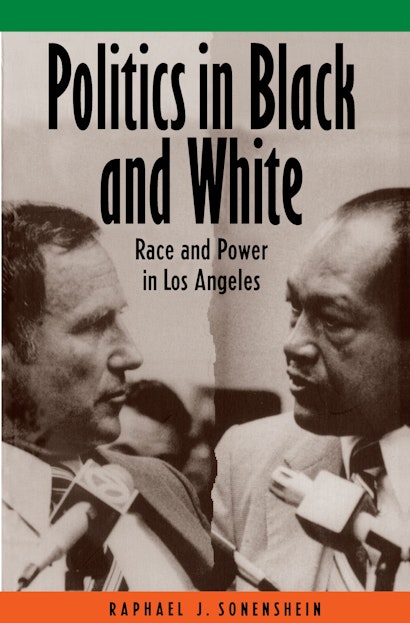This book reaches deep into the past of the city of Los Angeles and carries through to the dramatic events that have recently received global attention—the Rodney King beating and the uprising in South Central L.A. Tracing the evolution of an extraordinary biracial coalition in Los Angeles behind Mayor Tom Bradley, Raphael Sonenshein shows how “crossover” politics and racial violence coexist in urban America. While challenging the prevailing pessimism about biracial coalitions in general, he also compares their relative successes in Los Angeles to their disheartening failures in New York City. What emerges is a probing look at a crucial issue of politics in the United States: can whites and minorities find common ground?
Awards and Recognition
- Winner of the 1994 Ralph J. Bunche Award, American Political Science Association
Raphael J. Sonenshein is Associate Professor of Political Science at California State University, Fullerton.
"[A] perceptive and compelling analysis of the course of interracial politics in Los Angeles."—John White, The Times Higher Education Supplement
"An excellent account of the Bradley era."—Los Angeles Times
"In addition to being almost as current as the newspaper, Raphael Sonenshein provides a wealth of detail carefully placed in the evolving history of racial politics of Los Angeles. . . . Much like Moses and the promised land, Sonenshein's book offers a view of what the future may hold for racial coalitions. . . . The analysis in Politics in Black and White offers valuable guidance to those who seek to understand politics in our increasingly diverse society."—Charles S. Bullock, III, Political Science Quarterly
"This is clearly a valuable volume that needs to be studied by anybody who is concerned with the pragmatic and moral problems of race and ethnicity in American politics."—John Louis Lucaites, Annals of the American Academy of Political and Social Science
". . . a book that will set an agenda for research and the interpretation of urban politics for years to come. . . . The story that Sonenshein tells is vivid, based on solid evidence, and convincing."—Melvin L. Oliver, Contemporary Sociology

